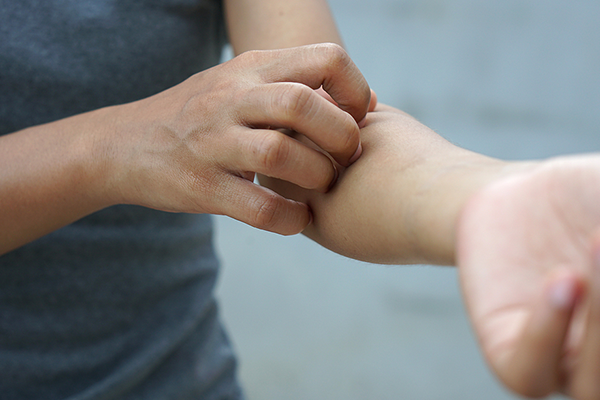You complain to your best friend that you’re having trouble sleeping: “Look into CBD oil,” she says. “That’s what I use.” You drive past a billboard with the words, “Feeling sad? Try CBD.” Then you overhear an older acquaintance at work talking about how he’s using CBD for the chronic pain he has from his arthritic elbow.
If you feel like CBD is everywhere, you’re right.
CBD, or cannabidiol, is a compound found in certain plants of the cannabis species. The Hemp Farming Act of 2018 removed hemp from Schedule 1 controlled substances and made it an ordinary agricultural commodity, which opened the floodgates for suppliers to begin selling it to consumers.
Two popular forms exist: CBD from hemp, which is widely available and legal in most states; and CBD from the marijuana plant, which can only be sold and used in states where recreational or medical-use marijuana is legal. The products are available as oils, capsules, loose powders, oral sprays, topical creams, even edibles like gummies or brownies.
Unless it’s marketed otherwise, CBD should be refined to remove THC, or tetrahydrocannabinol, which is what produces the “high” when someone smokes weed; THC is also present in hemp, but in smaller quantities. But should is the operative word. “CBD shouldn’t make you high,” said Dr. Jacqueline DuBose, a family medicine physician at Augusta University Health. “The caveat to this is that CBD is not regulated at all.”
Only one CBD product is approved by the U.S. Food and Drug Administration: a prescription medication designed to treat seizure disorders. Initial research for this drug was actually done here at the Medical College of Georgia at Augusta University.
“Really the risk and safety concerns are related to the lack of regulation, both of CBD and the products used in compounding it—the oils, the flavorings and other bases,” said DuBose. “It’s the Wild West out there.”
But anyone interested in CBD should still talk to their doctor first, in case the CBD affects how other medications work or if you have liver problems. “CBD is metabolized in the liver,” said DuBose. “There have been some rare cases of liver damage. It can also interfere with other drugs like statins for cholesterol or blood thinners like warfarin.”
What We Do Know
Overall, CBD has only minor potential side effects, like dry mouth, dizziness, low blood pressure and irritability.
Not a lot of research has yet been done on CBD, although some larger-scale trials are underway, says DuBose, including those finding some benefit for neurological disorders like multiple sclerosis. But the products are gaining in popularity because of the “friend” effect. “It’s word of mouth,” said DuBose. “CBD has become a very popular alternative to conventional treatments for things like anxiety, insomnia and some chronic inflammatory pain like arthritis.”
More also isn’t better. It is possible to overdose on CBD and cause harm to your liver or other organs. “So be very careful with it,” said DuBose.
Any woman who is pregnant or breastfeeding should certainly not use CBD in any form. And it shouldn’t be used by anyone under the age of 18.
At Work
Because CBD products aren’t regulated, no one really knows how much THC any given product might contain. While it’s probably not enough to make you high, it could be enough to show up on a drug test at work. “One thing I talk to patients about is if you have a job where you’re drug screened, don’t take this,” said DuBose. “It’s not worth the risk of losing your job.”
If You Want to Try CBD
While there’s not enough evidence right now for medical professionals to recommend CBD, DuBose said that if a patient is otherwise healthy and doesn’t have any contraindications, it’s probably not harmful and she wouldn’t discourage it. But do your homework, she urges.
“Read labels, and only buy products that show on the label that they’ve been tested by a third-party, non-biased lab,” she said. And since anyone can say anything on a label, also search online for reviews and other customer experiences. “That’s the best we can do at this point.”





